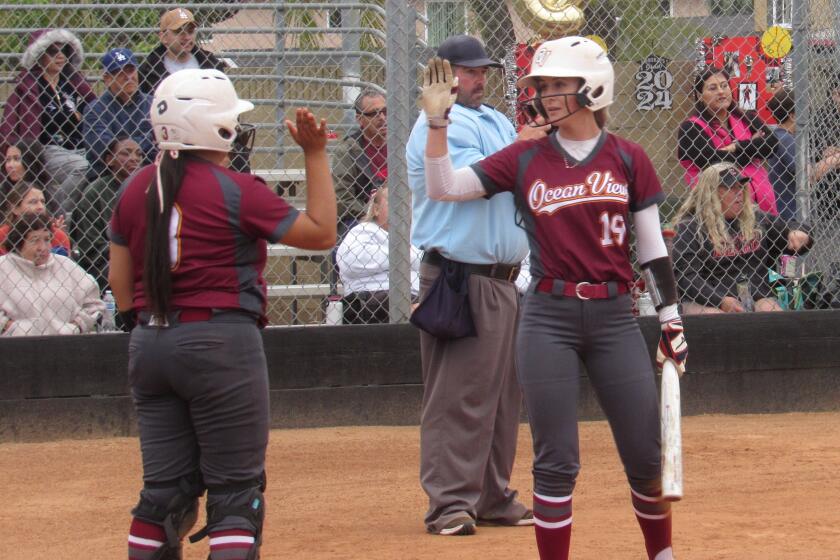In the Pipeline: Making noise over minute of silence
With the Olympics starting this coming week, I wanted to point out that this year marks the 40th anniversary of the worst day in Olympic history.
In 1972, at the Munich games, eight Palestinian terrorists killed two Israeli athletes and took nine hostages in the Olympic village. The terrorists ordered that the Israelis release 200 Arab inmates being held in prison. As you may recall, the Israeli government would not negotiate, thus starting a tense 20-hour, televised standoff.
Finally, the terrorists ordered the Germans to supply them with a plane to Egypt. The West German government, after agreeing, then tried to rescue the hostages at the airport. Tragically, all nine Israeli athletes and coaches, five Palestinians, and a German police officer were killed in the battle that resulted.
To commemorate the horrible anniversary, the Israeli government requested that the International Olympic Committee honor the tragedy with a minute of silence at this summer’s games in London. And the IOC refused.
It offered little in the way of a reason. IOC spokesman Andrew Mitchell told CNN that that the victims were honored at the Munich games back in ‘72, and that periodically victims are honored at other occasions, such as IOC sessions.
But so what? Who sees those events? And if Israel is asking for a mere minute, why not simply agree to it?
IOC President Jacques Rogge offered the following bland comment: “What happened in Munich in 1972 strengthened the determination of the Olympic Movement to contribute more than ever to building a peaceful and better world by educating young people through sport practiced without discrimination of any kind and in the Olympic spirit.”
So why I am I writing about this? First, I think it is outrageous that the IOC would reject such a simple, heartfelt request. Forty years is a long time, and as the writer and philosopher George Santayana said, “Those who cannot remember the past are condemned to repeat it.”
And this slaughter did not just affect Israelis. This was an assault on the world (and if you didn’t know, one of the Israeli athletes, David Berger, was actually from Cleveland, Ohio).
But the main reason I’m writing about this is that living in Fountain Valley is an athlete who was not just a medalist at those games, she’s also had her own run-ins with the IOC as it applies to medals that many (myself included) believe should be awarded to her and her teammates.
In 1972, at 15, Shirley Babashoff swam in Munich for the United States. She won a gold in the 400 freestyle relay, and silvers in the 100 and 200 freestyle events. At the 1976 games in Montreal, she medaled five more times but is perhaps best remembered as the only athlete brave enough to point the finger at the East Germans as she watched gold after gold go to a team who had mysteriously become “masculinized.”
Eventually, Babashoff’s accusations led experts to discover that for years, the East Germans had been doping. It resulted in their deserved downfall. But did the IOC ever strip them of their medals? No.
I spoke with Shirley (who also set six world records) about 1972 and got her take on the IOC’s denying Israel its request for a single minute of silence.
“A minute,” she laughed incredulously. “All they want is one minute and they are being denied that? Well, it doesn’t surprise me.
“To me, the IOC was never really about the athletes. It’s more about them, the social aspect, saying you’re a member of the IOC. That’s what they care about.”
Babashoff, who has been a mail carrier in Huntington Beach for 22 years, has never shied away from honesty. While that may have cost her in IOC circles, she doesn’t care.
“They’re in business for themselves,” she added. “I’m sure there are athletes today that have no clue about the ’72 games. So why miss a chance to educate the next generation?
“What about the kids watching on TV? Who do they think they will offend by doing that? Just one minute? They can’t sacrifice that?”
Babashoff also reflected on what it was like to be at the games in ’72 before and after the tragedy.
“At first it was awesome,” she said. “Like a sporting Disneyland! Being away from home at 15, with my own apartment. They had a music room, a giant chess set, great food. It was amazing.”
Then the terrorists struck. And at first, many athletes were oblivious because they only had closed-circuit TV.
“But when we found out, all of us girls dragged our mattresses into one room so we could cling together,” she said. “It was scary. We never really heard anything from officials until a couple of days after, at those closing ceremonies and memorial, which were just so sad.
“We ended up hearing that they got Mark Spitz out of there before the whole thing was over because he was Jewish, so they were extra concerned for him.”
Whether it’s political correctness, thoughtlessness, or just basic cluelessness driving the IOC’s decision to deny Israel its moment of silence, I think it’s despicable. So does Shirley.
What do you think?
CHRIS EPTING is the author of 19 books, including the new “Baseball in Orange County” from Arcadia Publishing. You can chat with him on Twitter @chrisepting or follow his column at https://www.facebook.com/hbindependent.
All the latest on Orange County from Orange County.
Get our free TimesOC newsletter.
You may occasionally receive promotional content from the Daily Pilot.



